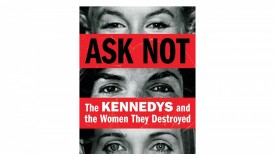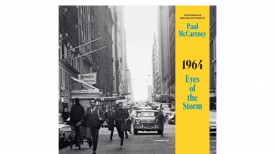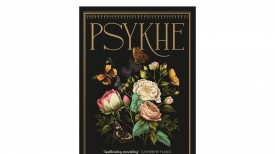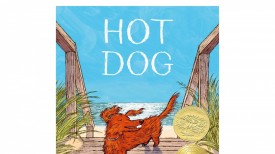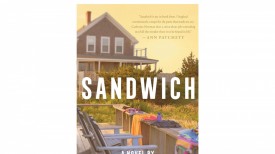‘We Were the Lucky Ones’ by Georgia Hunter Book Review: A Tale of Family Resilience Amidst World War II
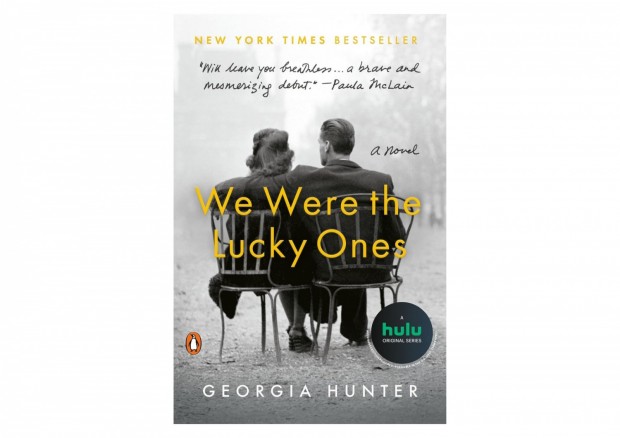
Discover the remarkable journey of the Kurc family in "We Were the Lucky Ones" by Georgia Hunter. Follow their tale of resilience and bravery amidst World War II's shadows as they navigate Europe's turmoil. (Photo : Amazon/Georgia Hunter)
"We Were the Lucky Ones" by Georgia Hunter narrates the real-life experiences of the Kurc family during World War II. Albeit the shadows of the era, the journey across Europe they accomplished embodies resilience and bravery.
The Kurc family in Poland lives seemingly normal lives despite the looming shadow of war. With the escalation of the horrors in Europe, the family faces dispersion, each trying to reach a safe place among the chaos.
The Kurcs end up being dismantled by the atrocity of war. As they start on a separate journey, each navigating through different battlegrounds, they strive for survival and a chance to be reunited. Their crossing and separation become spellbinding as they seek the comprehension of love, grief, and the eternity of the family connections.
The Author
Georgia Hunter has long since harbored a deep love for writing. She started writing at just four years old, inspired by her father's sci-fi stories. At 11, she pitched articles to the local paper about environmental topics. Her essays and pictures have appeared in reputable publications like the New York Times. On top of her freelance work for travel agencies, she has also taken an interest in learning about her family background.
Spurred on by a family reunion in 2000, she began her long journey of delving into her genealogy and historical accounts until it eventually led her to her first book, "We Were the Lucky Ones." Published in 20 languages and embraced by over a million readers, it has recently been adapted into a limited series by Hulu. This accomplishment marked a significant milestone in her mission to immortalize her family's history on screen.
Exploring Family Bonds Amidst Holocaust Horrors
Hunter's debut novel delves into the harrowing experiences of her family members during the Holocaust. Set in Radom, Poland, the Kurc family, once prosperous and content, finds their lives shattered by the horrors of war. As they are scattered across continents, each member faces trials and tribulations, from exile in Siberia to resistance efforts and desperate escapes.
In a review from A Bolt out of the Book, the reviewer expressed a deep emotional connection to "We Were the Lucky Ones," noting the novel's profound impact on them. They highlighted the book's unique focus on family, praising the characters' selflessness and resilience in the face of immense adversity. Despite initial confusion with multiple points of view, they found the storytelling compelling and emotionally evocative.
The book excels in depicting relationships and touching moments of love and sacrifice. While the historical background is well-researched, certain plot elements appear too coincidental, slightly diminishing the realism of the wartime story. Nevertheless, the book is praised for its heartwarming portrayal of family connections and its ability to evoke tears and joy in its readers.
A review from Reading Ladies also found the commitment to family themes particularly compelling, appreciating the portrayal of devotion and commitment among the characters. Moreover, they commended incorporating religious elements as a favorable aspect of the narrative, highlighting its scarcity in modern literature.
Hunter's deep emotional connection to the story, stemming from its basis in her own family history, contributed to the narrative's depth and emotional impact. The multitude of characters in the story may necessitate readers to follow numerous individuals closely throughout the narrative.
Shortcomings and Historical Significance
Kirkus Reviews noted that although Hunter's extensive research shines through in the novel's meticulous depiction of historical events, the writing frequently succumbs to clichés and lacks subtlety. Stale phrases and inadequate descriptions detract from the overall impact of the narrative. Characters remain flat and predictable, failing to evoke a deep emotional connection with the reader.
Despite its historical significance and the weight of its subject matter, the book struggles to break free from the conventions of Holocaust fiction. Impeded by its sentimentality and dependence on clichés, the novel fails to offer a unique viewpoint on this significant historical period.
In summary, this engaging book highlights human resilience in tough times, showing how hope and determination can win even in the darkest times. It offers a satisfying and uplifting read, especially for those who enjoy stories about family and resilience.
RELATED ARTICLE: Beyond 'The Tattooist of Auschwitz': 5 Books About Holocaust Worthy of Adaptation
© 2023 Books & Review All rights reserved.
Popular Now
1
Books to Read After 'Fourth Wing': Top Picks for Fantasy and Romantasy Fans

2
‘The Secret Public’ by Jon Savage Book Review: An Insightful Look Into the LGBTQ Influence

3
Stephanie Regalado's 'If They Only Knew' Column Is Now A Book, Unleashing 60 Anonymous True Stories to Empower Women

4
'No Wire Hangers' Scene That Almost Did Not Happen: New Book Reveals Faye Dunaway's Struggles

5
Rare First Edition of Aphra Behn's Novel 'Oroonoko' Discovered in Kent: A Historic Literary Find

Latest Stories
Book Reviews
‘The Secret Public’ by Jon Savage Book Review: An Insightful Look Into the LGBTQ Influence

Book News
Stephanie Regalado's 'If They Only Knew' Column Is Now A Book, Unleashing 60 Anonymous True Stories to Empower Women

Book News
'No Wire Hangers' Scene That Almost Did Not Happen: New Book Reveals Faye Dunaway's Struggles

Book Reviews
‘The Perfect Couple’ by Elin Hilderbrand Book Review: A Captivating Summer Mystery

Book News
New Book ‘The Franchise’ Reveals Penguins President Kyle Dubas’ ‘Biggest Mistake’ as Maple Leafs GM

